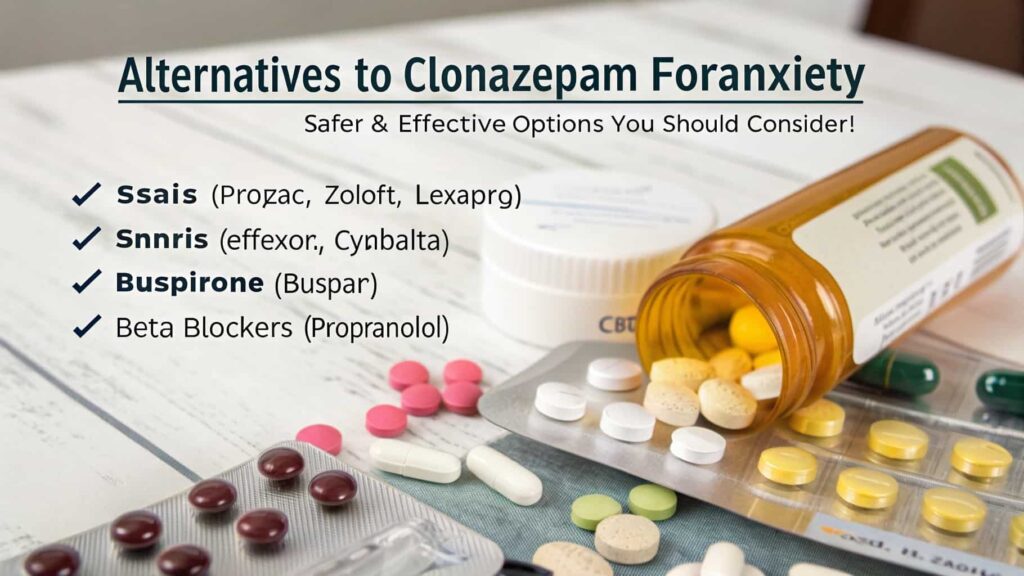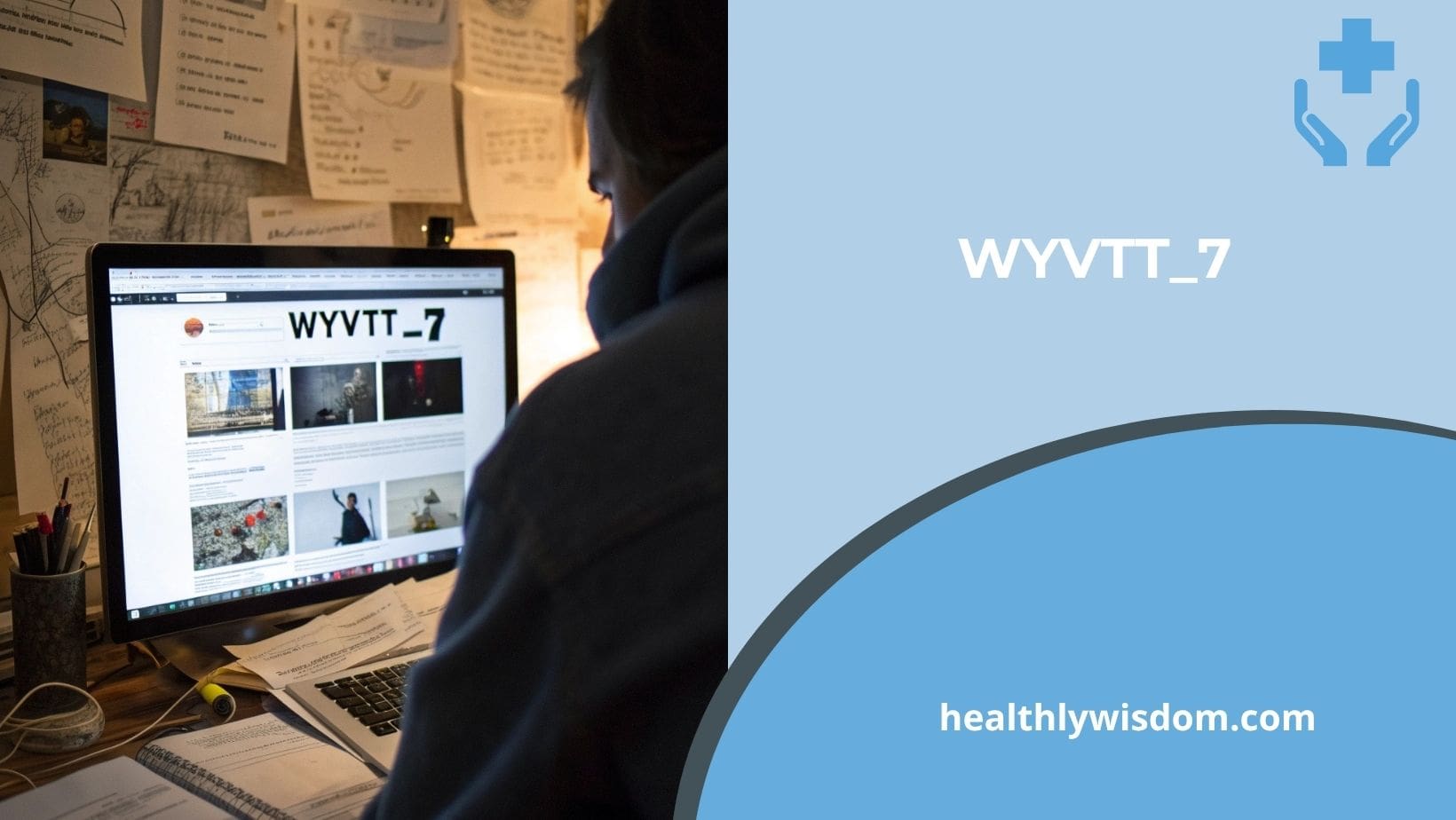Living with anxiety can feel like an uphill battle—your mind races, your heart pounds, and sometimes, even breathing feels like a struggle. If you’ve been prescribed clonazepam (Klonopin) to help manage your anxiety, you might be wondering: “Is 1mg a high dose for anxiety?”
The truth is, it depends on the person. For some, 1mg is a low, manageable dose that provides just enough relief to function normally. For others, it might feel too strong, causing drowsiness or sluggishness. Everyone’s body reacts differently based on tolerance, medical history, and symptom severity.
This guide will break it all down in simple terms—what clonazepam does, how it works, whether 1mg is a high dose, potential side effects, and alternative options. Whether you’re new to this medication or looking for more insight, you’ll find everything you need to make informed decisions about your anxiety treatment.
What Is Clonazepam And How Does It Work?
Clonazepam, commonly sold under the brand name Klonopin, is a benzodiazepine—a class of drugs known for their calming and sedative effects. It works by enhancing the effects of gamma-aminobutyric acid (GABA), a neurotransmitter in the brain that helps regulate mood, muscle relaxation, and nervous system activity.

People often take clonazepam to manage:
- Generalized anxiety disorder (GAD)
- Panic disorder
- Seizures (epilepsy)
- Social anxiety disorder
- Sleep disturbances (insomnia)
- Muscle spasms and restless leg syndrome (off-label use)
Unlike antidepressants, which take weeks to start working, clonazepam begins to take effect within 30 to 60 minutes, making it useful for acute anxiety episodes.
Is 1mg Clonazepam A High Dose For Anxiety? – Breaking Down The Dosage!
When doctors prescribe clonazepam for anxiety disorders, they usually start with a low dose and adjust it based on the patient’s response.
| Condition | Starting Dose | Typical Dose | Maximum Dose |
|---|---|---|---|
| Panic Disorder | 0.25 mg twice daily | 1 mg per day | 4 mg per day |
| Generalized Anxiety (off-label) | 0.25 mg – 0.5 mg per day | 1 mg per day | 2-4 mg per day |
| Seizure Disorder | 1.5 mg per day (divided doses) | 4-8 mg per day | 20 mg per day |
For anxiety, 1mg is considered a moderate dose, and most people tolerate it well. However, what feels “high” to one person may feel low to another. Some individuals may feel heavily sedated at 1mg, while others may require a higher dose to achieve the same effect.
How Does 1mg Of Clonazepam Affect The Body?
A 1mg dose of clonazepam can produce different effects depending on factors like body weight, metabolism, tolerance, and overall health. Here’s what you can expect:

Anxiety Relief:
Clonazepam reduces excessive nerve activity in the brain, making you feel more relaxed, calm, and in control. It helps reduce:
- Racing thoughts
- Excessive worry
- Physical symptoms like sweating, heart palpitations, and muscle tension
Sedation and Drowsiness:
Since clonazepam is a CNS depressant, it can make you feel sleepy or sluggish. This is beneficial for people struggling with insomnia, but for those who need to stay alert, it can be an unwanted side effect.
Muscle Relaxation:
Benzodiazepines have muscle relaxant properties, which can be useful if your anxiety causes jaw clenching, stiff muscles, or tension headaches.
Enhanced Sleep Quality:
Because of its sedative effects, clonazepam helps people fall asleep faster and stay asleep longer, making it useful for those suffering from stress-induced insomnia.
Potential Cognitive Impairment:
Higher doses of clonazepam can sometimes cause:
- Memory problems (forgetfulness, difficulty concentrating)
- Slowed reaction times
- Impaired coordination
If you’re taking 1mg for anxiety, it’s essential to avoid driving or operating heavy machinery until you understand how the medication affects you.
Risks And Side Effects Of Taking 1mg Of Clonazepam – What You Must Know Before Your Next Dose!
While 1mg of clonazepam is generally considered a moderate dose for anxiety, it still carries certain risks and side effects. Understanding these potential effects is crucial for safe usage.
Common Side Effects:
- Drowsiness and fatigue: Clonazepam slows down brain activity, leading to excessive drowsiness.
- Cognitive impairment and memory issues: Long-term use can lead to difficulty concentrating, brain fog, and confusion.
- Dependence and withdrawal symptoms: Since clonazepam is a benzodiazepine, prolonged use can lead to physical and psychological dependence.
- Increased risk of falls and injuries: Clonazepam affects coordination and reflexes, especially in the elderly.
- Respiratory depression (breathing issues): Higher doses can slow breathing, which is dangerous for people with lung conditions.
- Emotional and mood changes: Some individuals may experience irritability, mood swings, or even depression.
Rare Side Effects:
- Movement disorders, seizures, liver problems, depression, and suicidal thoughts.
- Severe allergic reactions, including a skin rash or hives.
Is 1mg Clonazepam Safe for Anxiety, Sleep, or People Without Seizures?
When considering clonazepam for anxiety, sleep, or other purposes, many wonder if a 1mg dose is safe, especially for those who don’t have seizures or anxiety. Let’s break down expert insights and real-world experiences.
Expert Insights: Nikhil Prabhu, Consultant Diabetologist
Clonazepam, a benzodiazepine, is usually prescribed for anxiety, seizures, or sedation. While lower doses (0.25mg or 0.5mg) are common for anxiety, 1mg is more often used for seizure disorders or managing withdrawal symptoms. For short-term use, 1mg is typically safe, even for people without seizures or anxiety, though it can cause sedative effects.
However, it’s important to be aware of potential side effects such as dizziness, drowsiness, indigestion, muscle coordination loss, and in rare cases, more severe effects like memory loss or depression. Always monitor how you feel and consult your doctor if you experience any unusual symptoms.
What People Are Saying About 1mg Clonazepam?
Quora Discussion:
Is 1mg a Safe Dose? A user on Quora raised concerns about the safety of a 1mg dose, mentioning that clonazepam is typically prescribed for managing seizures or anxiety. While a 1mg dose isn’t considered high for most people, it really depends on the individual. If someone is prescribed just 0.5mg for sleep, 1mg could feel like too much, leading to drowsiness or other side effects. So, while 1mg works well for some, it might feel a bit strong for others, especially when just trying to help with sleep.
Practo Consultation:
Is 1.25mg Effective? On Practo, there was a discussion about whether 1.25mg is an effective dose, with some experts saying it might fall just below the optimal therapeutic range for people dealing with anxiety. It’s not a “one-size-fits-all” kind of medication, and what works for one person might not be right for another. The best thing to do is follow your doctor’s advice and adjust the dosage if needed to ensure it’s working effectively for you.
Long-Term Use:
Is 1mg Too Much? One long-time user on Quora shared their experience of taking 1mg of clonazepam three times a day for anxiety since 1995. When their doctor reduced the dosage to 1.5mg per day, they worried it was too quick of a change. If you’ve been on clonazepam for a long time, it’s important to taper the dosage slowly and carefully to avoid withdrawal symptoms. Always check with your doctor before making any changes to your medication routine.
What Happens When You Stop Taking Clonazepam?
Even at 1mg, suddenly stopping clonazepam can trigger withdrawal symptoms. This is because your brain becomes dependent on the medication to regulate GABA activity.
Common Withdrawal Symptoms
- Rebound anxiety (often worse than before starting the medication)
- Insomnia and nightmares
- Irritability and mood swings
- Tremors and shaking
- Sweating and chills
- Heart palpitations
- Seizures (in severe cases)
- Hallucinations or paranoia (rare but possible)
The best way to avoid severe withdrawal symptoms is to gradually taper off the medication under medical supervision.
How Long Does It Take for Clonazepam to Work for Anxiety?
Clonazepam usually starts working within 30 to 60 minutes after taking it. Many people feel a sense of calmness and relaxation within the first hour. The medication reaches its peak effect in about 1 to 4 hours, making it helpful for reducing anxiety and panic symptoms.
The effects can last 6 to 12 hours, depending on how your body processes the drug. If taken regularly, it may take a few days to feel the full benefits for ongoing anxiety management. Always take it exactly as prescribed to avoid side effects or dependency.
Alternatives To Clonazepam for Anxiety – Safer & Effective Options You Should Consider!
While clonazepam is effective, it comes with risks like dependence. Here are safer alternatives:

Prescription Medications:
- SSRIs (Prozac, Zoloft, Lexapro) – Increase serotonin, effective for long-term anxiety.
- SNRIs (Effexor, Cymbalta) – Help anxiety and physical symptoms like tension.
- Buspirone (Buspar) – Non-addictive, takes time to work.
- Beta-Blockers (Propranolol) – Control physical symptoms of anxiety.
Cognitive Behavioral Therapy (CBT):
- Proven therapy that helps change negative thought patterns.
- Long-term solution without medication dependence.
Natural Remedies & Lifestyle Changes:
- Meditation, deep breathing, and yoga – Reduce stress naturally.
- Regular exercise – Lowers stress hormones, improves mood.
- Herbal supplements – Ashwagandha, Valerian root, and L-Theanine promote relaxation.
Diet & Sleep Improvements:
- Improve sleep hygiene (consistent bedtime, limit screens).
- Reduce caffeine, alcohol, and processed foods to lower anxiety.
FAQs:
Can I take clonazepam every day for anxiety?
Yes, some doctors prescribe clonazepam for daily use, but long-term use is discouraged due to dependency risks. It is typically recommended for short-term relief while exploring safer alternatives like therapy or SSRIs for long-term management.
Is 1mg Clonazepam a High Dose for Sleep?
1mg of clonazepam for sleep is typically considered a moderate dose. It’s effective for some people, but it may cause sedation and grogginess for others. Always consult your doctor to determine the right dose based on your needs and tolerance.
What is the max dose of clonazepam in 24 hours?
The maximum recommended dose of clonazepam in a 24-hour period typically does not exceed 4 mg for anxiety. For other conditions like seizures, the dose can go higher but should be determined by a healthcare professional.
What happens if I overdose on clonazepam?
A clonazepam overdose can cause extreme drowsiness, confusion, slow breathing, and unconsciousness. In severe cases, it may lead to coma or death, especially if combined with alcohol or opioids. Seek emergency medical attention immediately if an overdose is suspected.
Is 5mg Klonopin a High Dose?
Yes, 5mg of Klonopin is considered a high dose, particularly for anxiety or panic disorders. For most individuals, doses this high carry a significant risk of sedation, cognitive impairment, and dependence. Always use it under strict medical supervision.
Is 0.5mg of Clonazepam a Lot for Anxiety?
0.5mg of clonazepam is a common starting dose for anxiety and is usually not considered too much. It’s an effective dose for many, providing relief from anxiety symptoms without excessive sedation. However, individual responses can vary, so it’s important to follow the doctor’s advice.
Conclusion:
A 1mg dose of clonazepam is not considered high for anxiety but is a moderate dose commonly prescribed for treatment. While it helps reduce anxiety, panic attacks, and muscle tension, it should be used with caution due to the risk of dependence and side effects.
Long-term use is not recommended, and it’s important to follow your doctor’s guidance for safe use. If needed, there are alternative treatments, including therapy, lifestyle changes, and other medications. Always monitor your response to the medication and consult a healthcare provider for any concerns. Responsible use ensures effective anxiety relief while minimizing risks.
Also Read:








Leave a Reply